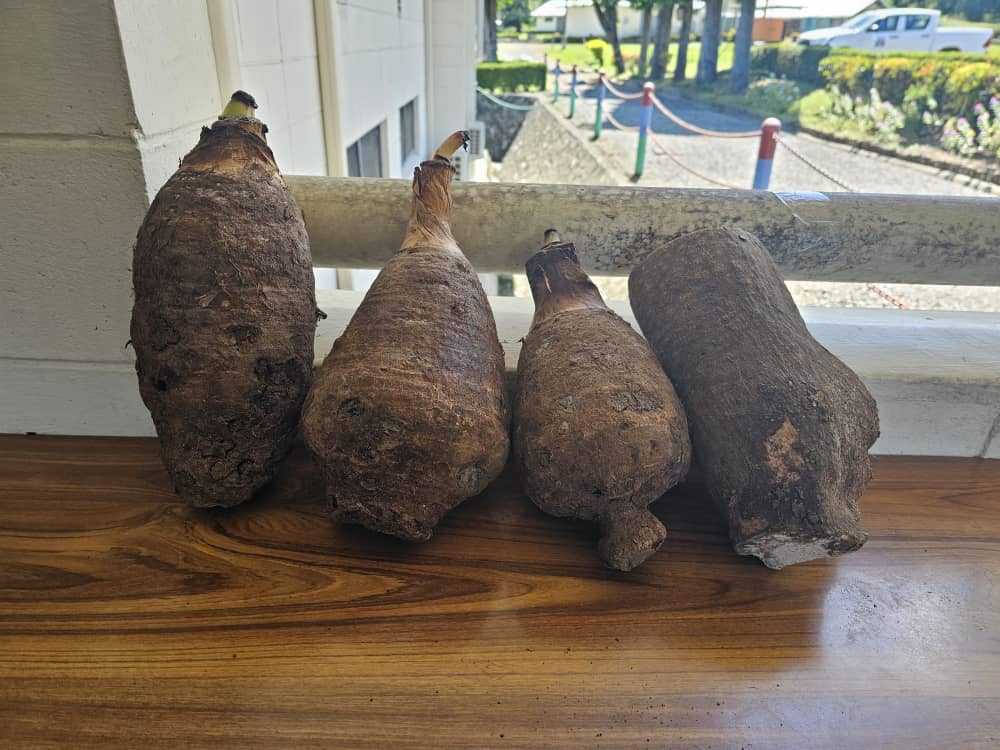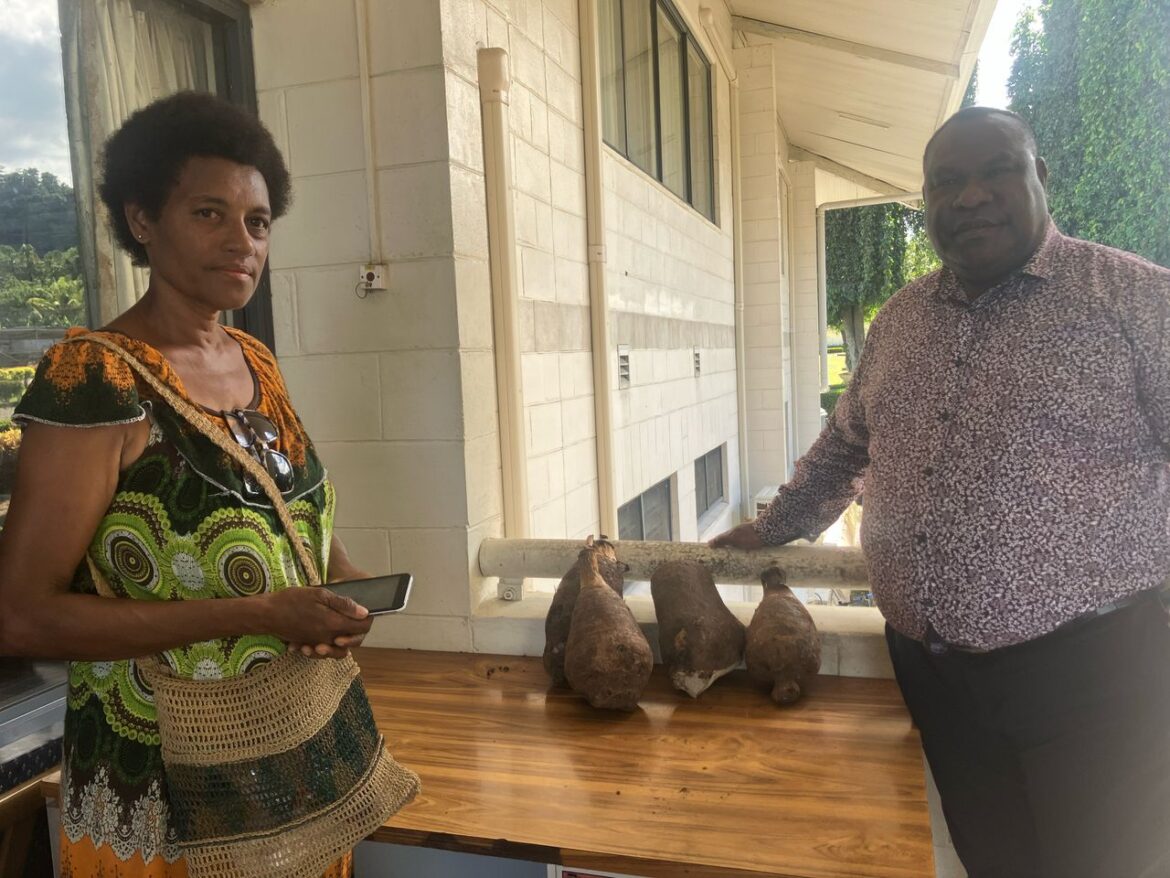Accessibility to market is still a major demoralizing factor for farmers in the rural areas to go commercial.
But villagers from Rebafu, one of the remotest parts of Sialum LLG, of Tewai Siasi District, Morobe Province is willing to work with the National Agriculture Research Institute (NARI) to find a way forward to supply local Taro to the export market.
Susan Emunare Geoba, from Rebafu paid a visit to the National Agriculture Research Institute (NARI) on Wednesday (22/05/25) after hearing about NARI’s interests in Taro.
She managed to bring with her, three samples, including a Yam.
From her village in Rebafu, it took her a day of walking, to reach the coast before boarding a ship to Lae.
“For the villagers, it takes about 5 to 6 hours to walk to the coast. I reside in Lae so I don’t have the same stamina to walk that fast,” giggled Susan, but added she enjoys going to the village for, free and an abundance of fresh produce.
Susan proudly boasts of the size of Taro in her village, making reference to the height of a 50cm cooking pot and about 20cm wide.
“The Taro is so heavy I managed to bring only three samples,” proudly exclaimed Susan, despite the burden of weight.
After hearing about NARI’s partnership with local Taro exporters, Susan initiated discussions with her family.
“Taro is significant in our culture. It signifies wealth and earns respect among villagers. Taro has great value in customary obligations such as Pride Price.
“Every household has a taro garden, so we have a surplus. We are willing to work with NARI to see how we can expand on the production and find a cost-effective means to transport the taro out.
“The major issues we have are road infrastructure, transport, and freight costs,” Susan optimistically revealed.

She was however glad to have an audience with the Director General of NARI Dr Nelson Simbiken and invited NARI to visit Benafu village during the peak of harvest between August and September.
Dr Simbiken acknowledged that Morobe grows some of the best taro species in the country including NARI’s Taro, NT1 through NT7.
He echoed similar concerns of road infrastructure, transport, and freight as major hindrance for commercialisation in rural areas.
“People are excited now and they want to supply taro but an issue for us is freight excess.
We want to come up with a freight subsidy scheme for Morobe Province so that we can bring taro from the outskirts of Morobe.
“We are expecting some funding assistance from the government, for freight. Once that
happens, we can be able to assist farmers like Susan who will help to meet the supply
demand,” said Simbiken.


Comments are closed.